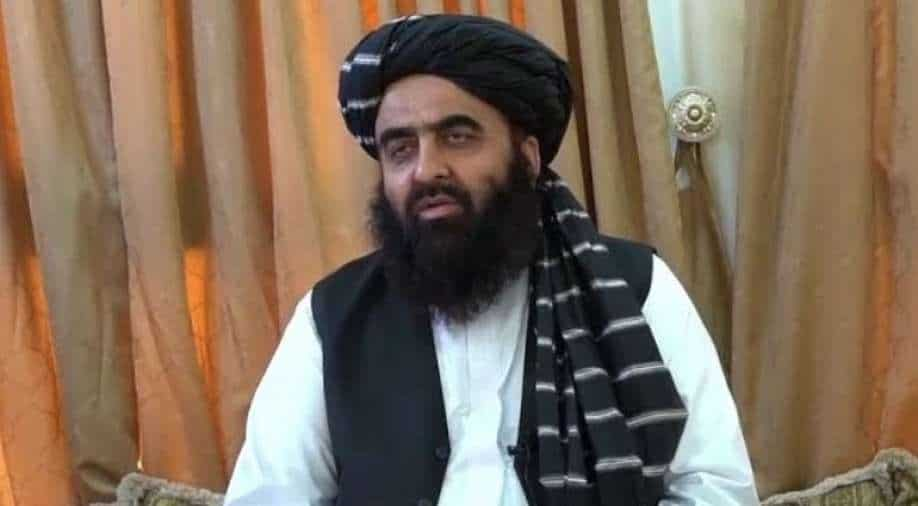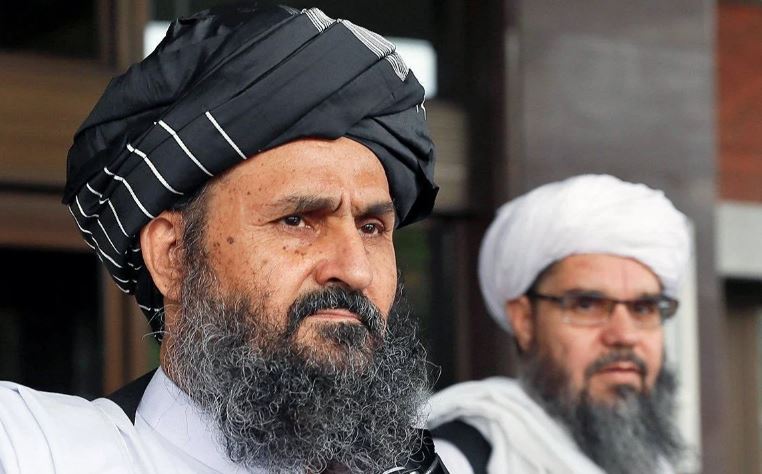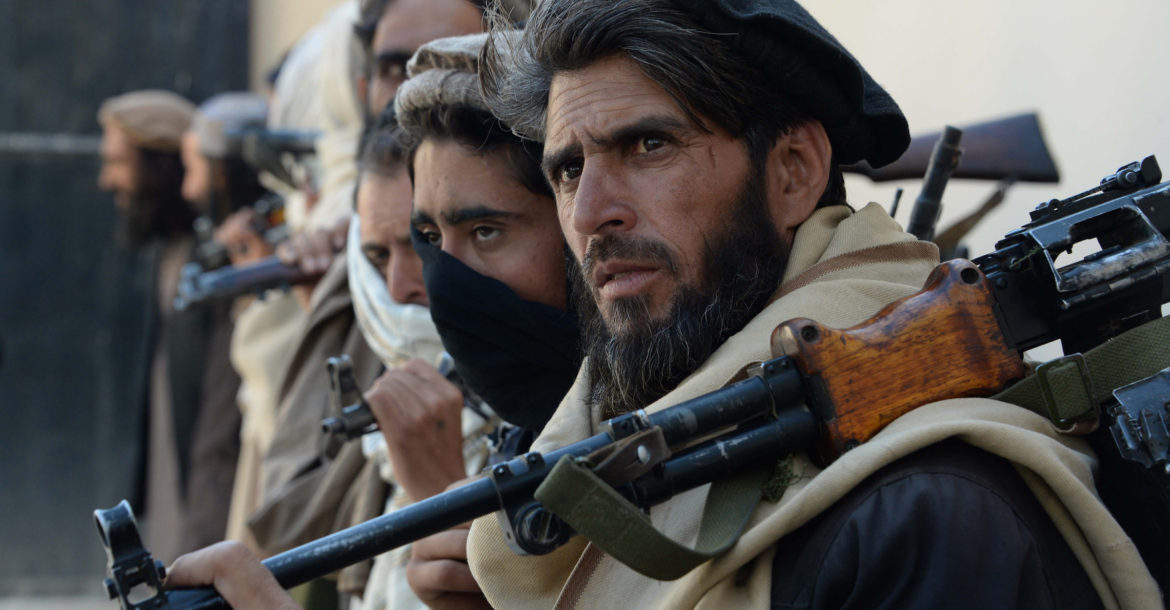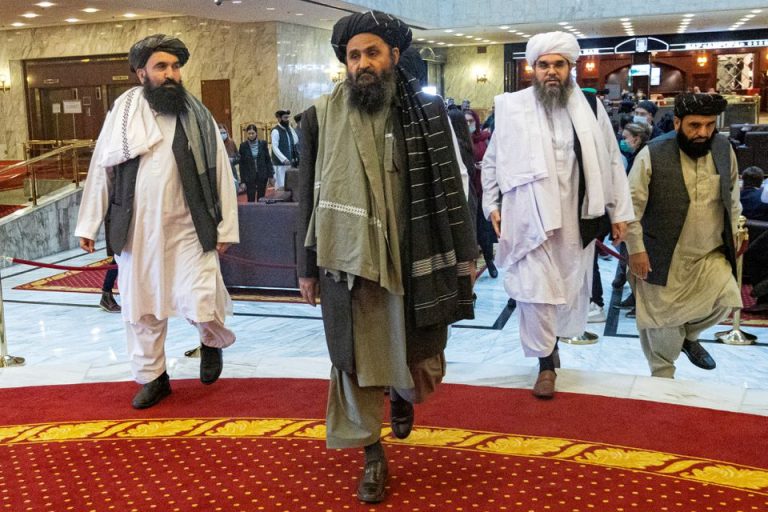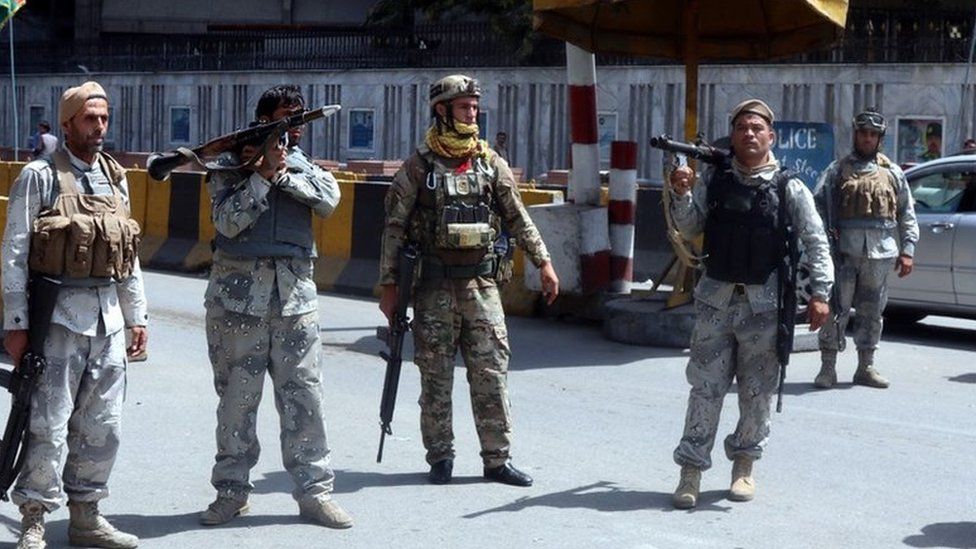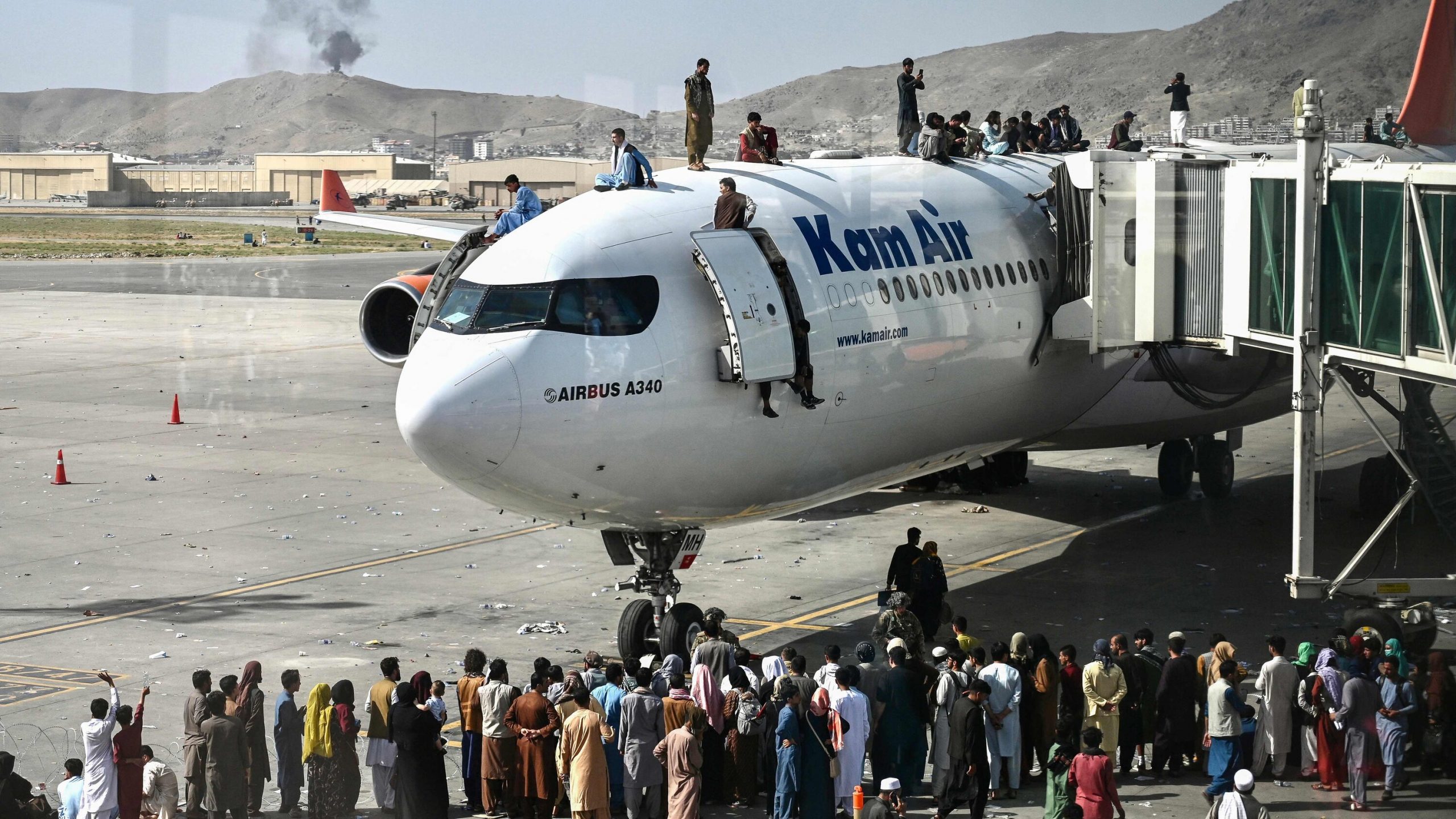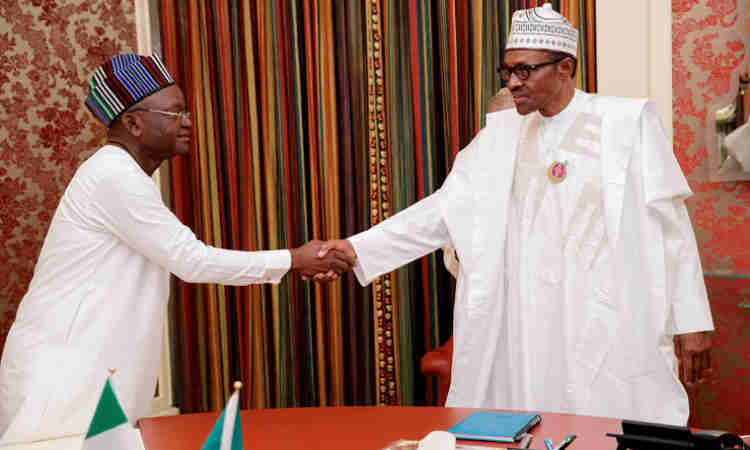In the words of the Spanish-born American scholar, George Santayana, “Those who cannot remember the past are condemned to repeat it.” And by any stretch of imagination, no group of people in recent memory has failed to remember its past more than the United States of America. Within a span of about five decades, the US has twice failed to take cognizance of some ugly occurrences in its past, and has therefore incurred avoidable humiliation and derision.
The unfolding events in Afghanistan are reminiscent of occurrences in the closing days of the Vietnam War of 1960 – 1975, which saw the US suffer its first major military defeat in the Cold War era. The prevailing chaos amidst frantic efforts to evacuate its citizens and Afghan associates from the troubled country seem very much like a replay of the scenes of Vietnam in April 1975, when US forces raced against time to airlift Americans and Vietnamese collaborators out of the city of Saigon, besieged by enemy forces – the North Vietnamese Army (NVA) and its South Vietnamese rebel ally (Viet Cong).
Specifically, the August 15, 2021 horror-images of Kabul International Airport, showing desperate Afghan men, women, and children struggling to board an American military transport aircraft (with some clinging to its underbelly and rooftop even as it taxied for takeoff), are grim reminders of the events of April 29 – 30, 1975 in Vietnam. In those last two days of America’s misadventure in Vietnam, the world watched in horror as several military helicopters involved in the evacuation of about 7000 Americans and Vietnamese allies to aircraft carriers stationed off the coast of Vietnam were manually pushed overboard into the sea in order to make way for others to land.
Similarly, the escape of President Ashraf Ghani to the United Arab Emirates (UAE) on August 15, 2021 bears close resemblance to the April 21, 1975 exit to Taiwan of a weeping South Vietnamese President Nguyen van Thieu, who accused American President Richard Nixon of “betrayal” and “irresponsibility” for holding peace negotiations with the NVA and Vietcong, thus undermining his war efforts against the enemy forces. While Ashraf Ghani may not have directly leveled such accusations against the US government, most people however share the view that his government was seriously undermined by President Donald Trump’s 2018 – 2020 peace negotiations held with the Taliban, without Aghan authorities in attendance. The eulogies reportedly lavished on the Taliban by President Trump in course of the negotiations apparently contributed to the aura of invincibility that subsequently trailed the militant group, hence Afghan security forces dreaded confronting them as they advanced from province to province on their way to seizing the capital of Kabul on August 15, 2021.
It is often said that hindsight is always wise, but nearly every analyst agrees that the unraveling Afghan fiasco, like the Vietnam debacle, could have been avoided had the US not succumbed to great-power chauvinism and hubris. There is no gainsaying the fact that the war machine of a super power can pound any Third World country into submission within a matter of months, or even weeks, but the subsequent pacification of the defeated country is another ball game entirely. The defunct Soviet Union realized this fact the hard way in Afghanistan, ditto the US in both Vietnam and Afghanistan.
Had the US learned from the 1954 bitter experience of France in Vietnam, it might have avoided the ugly fate that similarly befell her. Under the command of the legendary General Nguyen Vo Giap, Vietnamese nationalists (Viet Minh) dealt France a humiliating defeat on May 7, 1954, when they captured more than 10,000 French troops from their military complex at Dien Bien Phu. The humiliation forced the European power into an immediate and unconditional withdrawal from Vietnam. Failing to heed the advice of French President Charles De Gaulle, who warned that Vietnam would trap the US in “a bottomless military and political swamp,” President John F. Kennedy, upon assuming power in 1961, escalated the Vietnam War that his predecessor, Dwight Eisenhower, had unwisely inherited from France.
Between 1961 and 1975, the US fought a bruising war in Vietnam. By dint of its superior war machine, it narrowly avoided a Dien Bien Phu-type humiliation in January 1968, when an NVA siege on a Marine base at the remote mountain location of Khe Sanh was successfully broken after a 77-day round-the-clock bombardment by waves of B-52 Stratofortress, in what has been described as the heaviest bombardment of a small area in the history of warfare. To say the least, US forces practically saw hell in Vietnam, until the last 10 Marines were hastily evacuated by a helicopter from their embassy in Saigon on April 30, 1975, bringing an end to the 15-year war that saw six different presidents in office. In their casus belli, they all conveniently cited the “Domino Theory,” which erroneously held that victory for communism in Vietnam would spell disastrous consequences for capitalism within the region as the surrounding countries will all fall, one after the other, like a falling row of dominoes.
Four years after the Vietnam War, the Soviet Union, failing to learn from the ignominious example of its super power rival, rumbled into Afghanistan on December 24, 1979, ostensibly to protect the forces of communism. Swift reaction from the US and its allies, including Arab states, greeted the Soviet invasion. They demanded the immediate and unconditional withdrawal of all Soviet forces. Afghan Mujahedeen (Muslim fighters) began receiving massive military aid and training from them. As many as 35,000 foreign Muslim fighters (International Mujahedeen) moved into the country to wage a guerilla-style campaign against the Soviet forces massed in Kabul. With the enormous cost of the war almost crippling the Soviet economy, reformist President Mikhail Gorbachev decided to bring the 9-year occupation to an end in February 1989. Unfortunately, the invasion unleashed a chain of events that culminated in the emergence of the Taliban on the Afghan political centre-stage by 1996.
While the US’ objective in Soviet-occupied Afghanistan was the containment of global communist expansionism, the International Mujahedeen had other ideas. At the end of the conflict, most of them became Islamic militants and ideologues in their various countries. Some, like Osama bin Laden, formed the Al Qaeda (the Base) terrorist network for the purpose of fomenting a global Jihad. The group went on to mastermind the September 11, 2001 terrorist operations that saw a combined death toll of 3016 individuals of various nationalities, prompting the US to declare a global “War on Terror.” In his speech to the US Congress on September 20, 2001, President Bush declared: “We will pursue nations that provide aid or safe haven to terrorism … Every nation, in every region, now has a decision to make. Either you are with us, or you are with the terrorists.”
Consequently, the US asked Mullah Omar’s Taliban-led government in Afghanistan to hand over Osama bin Laden and expel the entire al Qaeda terrorist organization from the country. Unsurprisingly, it refused to accede to the demands. On October 7, 2001, the US and its NATO allies launched “Operation Enduring Freedom” aimed at ousting the Taliban from power and expelling al-Qaeda from the country. Both objectives were achieved by December 17, 2001, although the leadership of both organizations successfully escaped to remote rugged mountain locations within the country and neighbouring Pakistan. A fugitive Osama bin Laden was eventually killed by US forces in his hideout at Abbottabad, Pakistan, on May 2, 2011, while Mullah Omar reportedly died of tuberculosis on April 23, 2013 in Zabul, Afghanistan. But, the rump of the Taliban survived to fight another day.
Following the success of the Afghan invasion, the US and NATO forces, under the auspices of the UN-backed International Security Assistance Force (ISAF), embarked upon a mission to reorganize the country’s governmental structures and security forces. To a large extent, they succeeded in this task. By 2004, Afghanistan had in place a democratically elected government headed by President Hamid Kazai, while the Afghan National Security Forces were being rigorously trained and equipped to withstand both domestic and external threats. Critics maintain that this is the point at which the US and its allies should have left the country. But, as they say, hindsight is always wise. Rather than leave, they embarked upon an indeterminate nation-building mission, which the Taliban eventually exploited to its own advantage.
The US and Soviet misadventures in Vietnam and Afghanistan show that pacification missions by invading powers are more likely to fail than succeed, because they are deeply unpopular both domestically and internationally. Incumbent US President Joe Biden corroborates this position in his White House address of August 16, 2021:
“So I’m left again to ask of those who argue that we should stay: How many more generations of America’s daughters and sons would you have me send to fight Afghans – Afghanistan’s civil war when Afghan troops will not? How many more lives – American lives – is it worth? … I’m clear on my answer: I will not repeat the mistakes we’ve made in the past – the mistake of staying and fighting indefinitely in a conflict that is not in the national interest of the United States, of doubling down on a civil war in a foreign country, of attempting to remake a country through the endless military deployments of U.S. forces …Those are the mistakes we cannot continue to repeat …”
Either due to large-scale corruption, or sheer incompetence on the part of successive Afghan governments, or the brutal terror tactics (suicide-bombing, car-bombing, hostage-taking, extortion, intimidations, etc.) adopted by its militants, a resurgent Taliban made rapid gains overtime, beginning in 2004. In July 2018, the Trump Administration entered into peace talks with the militant group. The negotiations yielded the Doha Peace Agreement of February 29, 2020. That agreement, which established a deadline for US and NATO troop-withdrawal by May 1, 2021, was negotiated and signed without the involvement of the Afghan government. Perhaps, it explains the refusal of the Afghan security forces to engage the advancing Taliban militants, choosing instead to negotiate and surrender their superior weapons. President Biden alluded to this situation in his aforesaid White House address:
“… We spent over a trillion dollars. We trained and equipped an Afghan military force of some 300,000 strong – incredibly well equipped – a force larger in size than the militaries of many of our NATO allies. We gave them every tool they could need. We paid their salaries, provided for the maintenance of their air force – something the Taliban doesn’t have. Taliban does not have an air force. We provided close air support. We gave them every chance to determine their own future. What we could not provide them was the will to fight for that future…”
The popular axiom that “people get the type of government they deserve” echoes in President Biden’s statement. If after a 20-year liberal nation-building effort the Taliban could so easily reclaim power without as much as a battle, then Afghans surely deserve a Taliban-led government, even though the group’s murderous reputation precedes it like a long evening shadow. To most liberal-minded Afghans who witnessed its government of 1996 – 2001, the Taliban is nothing but an Islamic fundamentalist death-cult. Its name strikes terror into their hearts and minds. Little wonder their desperate efforts to flee the country before the militants begin to unleash tyranny upon them in the name of governance.
Otherwise known as “Students” or “Seekers,” the Taliban was founded in the province of Kandahar, Afghanistan, in September 1994 by Mullah Omar, a member of the local Mujahedeen that spearheaded the anti-Soviet insurgency. The group, comprising mainly ethnic Pashtun, was allegedly formed with the support of Pakistani government authorities. Its initial membership was drawn from students (talib) of Islamic religious schools (madrassas) in Pakistan. They espoused strict adherence to the Sharia (Koranic Law). The Taliban took advantage of the factional power-struggle within the ruling Mujahedeen to seize power in September 1996, with Mullah Omar as head of its self-proclaimed Islamic Emirate of Afghanistan.
While in government, the Taliban practically operated by the third syllable of its name, Ta-li-ban. It banned nearly every modern feature of the Afghan society. Activities depicting people and other living things, such as painting, photography, movies, television, music, and the Internet, were all banned. Sporting and recreational activities, including mass-appeal sports like football, were banned. Religious and cultural artifacts were deemed idolatrous and therefore banned. Life became drab and dull as the Taliban sought total control over the way of life of all Afghans. All men were forbidden to shave their beards, and the wearing of the turban outside the home was made compulsory. Floggings, imprisonments, and executions attended violations.
It was, however, the Taliban’s repression of women that drew the attention of the rest of the world to its tyranny. Apart from being prohibited from working, women were forbidden from attending schools, and those already in attendance prior to 1996 (when the Taliban seized power) were withdrawn. They were all required to remain in purdah, and whenever they ventured outside their abode, they had to be attired in the burqa (a traditional dress covering the entire body from head to toe with a small slit for the eyes). Outside the home, they had to be accompanied by male relatives. Non-compliance was met with public flogging and stoning. Women, whether in their parental or marital homes, became glorified prisoners.
Leopards do not change their spots. Hence, the Taliban cannot be expected to deviate from its religion-based autocracy and misogyny in its second coming. For all its present moderate posturing, the Taliban is part of the global axis of religious extremism and terror, which includes al-Qaeda and the Islamic State in Iraq and the Levant (ISIL), with the likes of Boko Haram and Al Shabaab playing supporting casts. Together, they all view women as objects not deserving of social existence. The untold horrors of sexual violence and slavery committed by ISIS against the Yazidi women of Sinjar in Northern Iraq, in August 2014, attest to this position. One account had it that the women were treated as “spoils of war” and sold “like cattle,” with age determining their price tag: “The younger the slave, the more expensive.” Pray that the victorious Taliban, like ISIL, is not tempted to consider Afghan women “infidels” as part of its spoils of war, just like the American-supplied weapons seized from Afghan forces.
Twenty years have lapsed since the Taliban’s first tumultuous reign under Mullah Omar was terminated in a blaze of gunfire and missiles by US and NATO forces in collaboration with local Mujahedeen elements represented by the likes of “Northern Alliance” and “Hezb-e-Islami Gulbuddin,” all of whom are presently watching events from the sidelines. What they might do next is anybody’s guess. In any case, the Taliban would soon come to the realization that it is easier to wage a hit-and-run guerilla campaign, than run a civil government. Now that the common enemy, “the US and its puppet government,” are out of the way, the militants and warlords may soon be at daggers drawn aiming for each other’s jugular in their selfish quest for control of the reins of power. Therefore, it may not be smooth-sailing for Hibatullah Akhundzada’s government.
Nevertheless, miracles do happen, even in international relations. Like the Socialist Republic of Vietnam, which normalized relations with the US in 1995, and has also opened up its communist-oriented society to the rest of the liberal-capitalist world, a Taliban-led Afghanistan might metamorphose into a moderate Islamic state where the basic freedoms and rights of citizens, especially the womenfolk, are respected. Time will tell.
Dennis Onakinor, a self-styled “natural historian,” is a public and international affairs analyst, who lives in Lagos.
